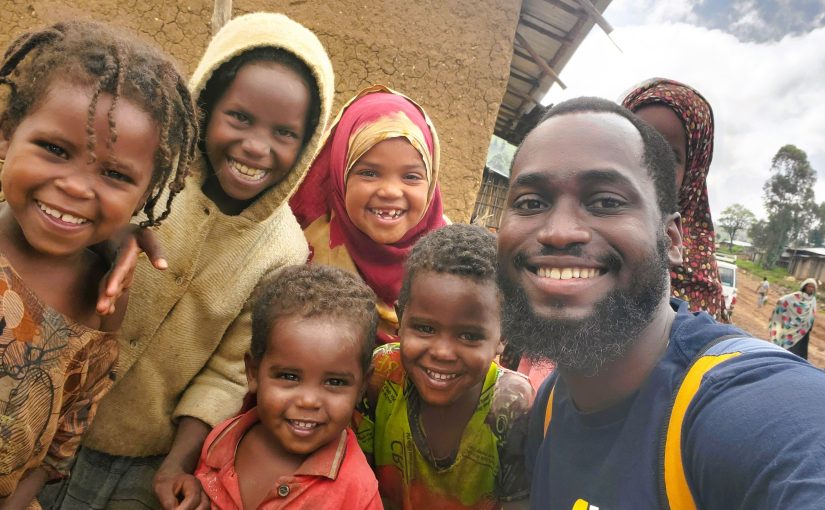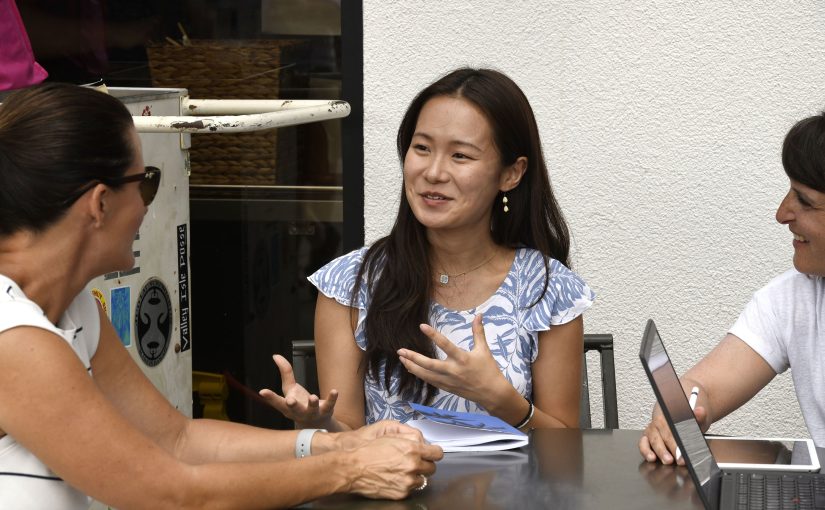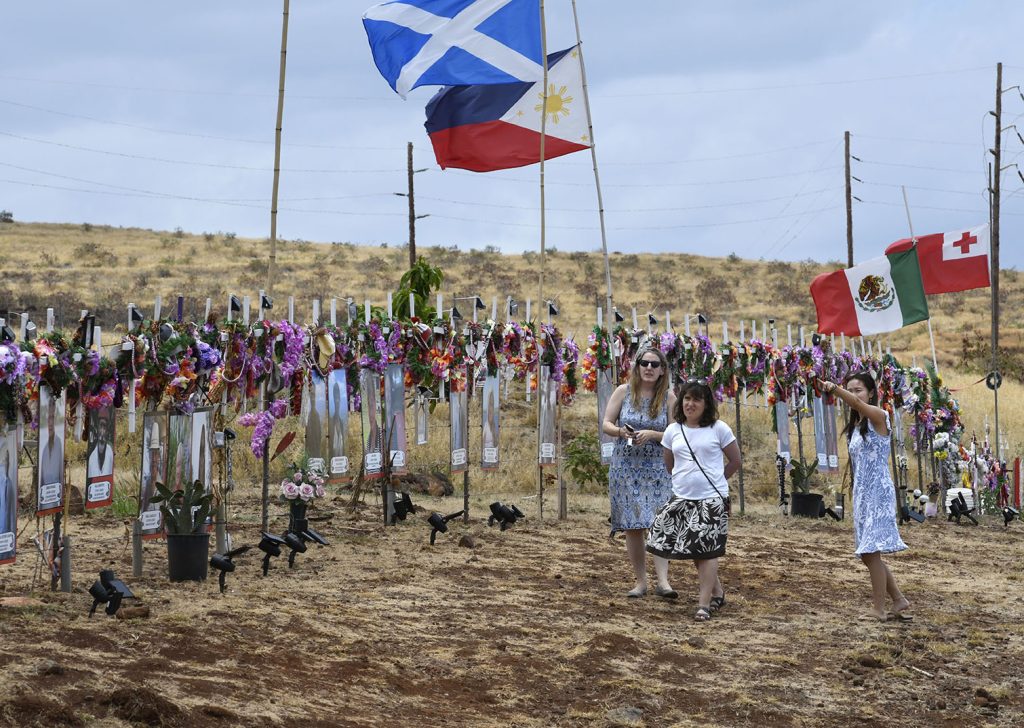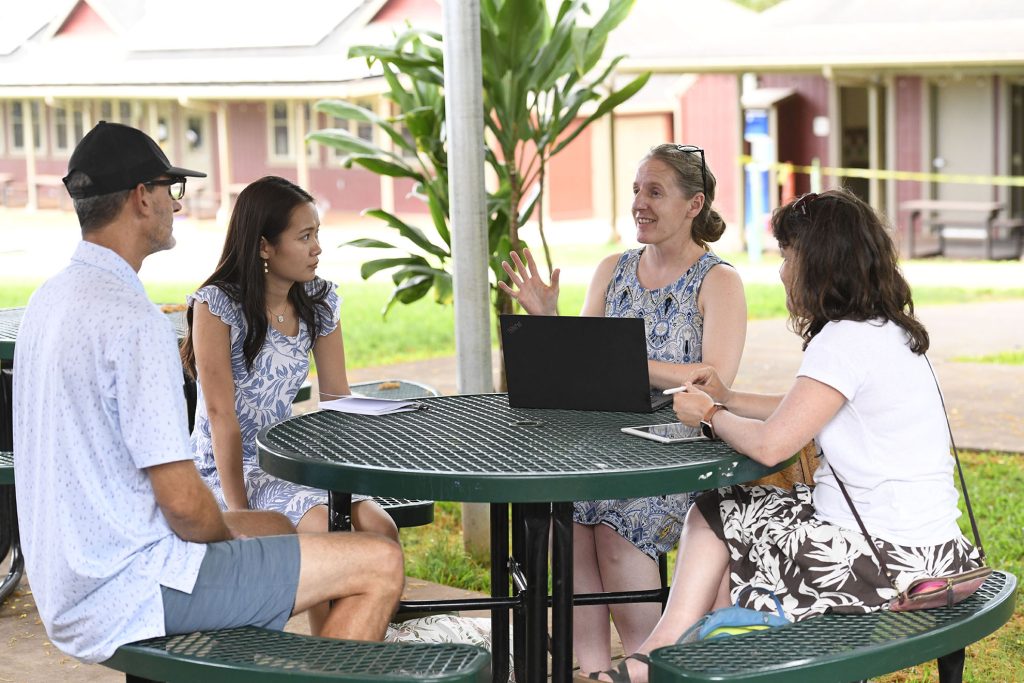By Emmanuel Gyasi
Field research is challenging on multiple fronts, especially when it is done in an unfamiliar environment or context. Navigating research technicalities and non-research related variables such as new cultural patterns, infrastructural inadequacies, language barriers and peculiar team or community dynamics, field research can impose huge demands that can affect team performance if not properly managed. Some of these challenges became obvious as my team embarked on its Global Partner Engagement (GPE) this past summer through the Keough School’s Integration Lab (i-Lab).
For context, the GPE, a core aspect of the Master of Global Affairs program at the Keough School of Global Affairs, offers graduate students in the governance and policy and sustainable development concentrations the opportunity to travel across the world to undertake research that addresses key global issues in partnership with leading development organizations such as Catholic Relief Services (CRS), Oxfam, and Mercy Corps. The GPE equips students with real-world experiences in field research and problem-solving while serving as a bridge between policy and practice in the development world.
My team embarked on its field work with CRS between May and July 2024 to assess the effectiveness of Nexus-style food security programming in Madagascar and Ethiopia. Originally known as the Humanitarian, Development and Peacebuilding (HDP) Nexus, this food security programming emphasizes the need to holistically address the immediate and long-term dimensions of food insecurity — humanitarian crises, structural development deficiencies and social cohesion issues — with a promise of better outcomes than standalone food security interventions.
Notwithstanding this promise and the Nexus programming’s recent popularity, little is known about whether it is indeed effective and efficient. Because of this uncertainty, my team’s field research goal was to provide empirical evidence on the impact, sustainability and cost effectiveness of humanitarian, development and peacebuilding interventions in tackling food insecurity.
Throughout the study we worked with CRS staff and local personnel from both countries to conduct 44 focus group discussions and 30 key informant interviews, engaging nearly 350 research subjects in the process.
This demanding study challenged our ability to persist in field work. Sometimes, we easily sailed through. Other times required hard conversations, a lot of critical thinking and courage to gradually overcome the challenges we faced.
Having now successfully navigated some of the most demanding circumstances I have encountered, here are seven things I learned that could help teams thrive in field research:
- Learn as much as you can about the research environment beforehand.
Amid the technicalities that accompany field research, it is easy to be laser-focused on your research objectives while neglecting the study of your new environment. Things like culture, values and norms may seem less important, but they can become the difference between successful field research and a disaster.
For example, imagine that you spend a lot of effort developing an excellent research proposal, travel several hours or days to the research site, travel to the community where your subjects are and boom! In your first few words of introduction, you make an ignorant statement that is culturally insensitive. (It will only take seconds for research subjects to abandon the study or angrily chase you out, if your luck fails.) Or without an understanding of gender dynamics, you decide to form mixed-gender focus groups in a highly patriarchal community, only to realize that responses generated are highly dominated by men with very few women contributing or in other cases providing “politically correct answers” and not genuine insights into questions posed.
Such oversights could ultimately cause your efforts to be washed down the drain. Though some of these sociocultural nuances might at first seem irrelevant to your research objectives, it is still critical to study them and incorporate them in your field plans. Admittedly, you cannot and will not be able to learn everything. But having some basic knowledge before going into the field can help the team start off on the right foot.
- Be honest about how you feel.
Field research may be your first time traveling beyond familiar territories or experiencing difficult living conditions, harsh weather patterns or volatile security situations. These conditions can be daunting. Rather than “macho-up” or shy away, it is important for each team member to be honest about how they feel. This honesty allows the team to gain an in-depth understanding of each other’s strengths and weaknesses and the extent to which each person and the team as a whole can complete work.
This type of understanding also helps the team effectively reassign roles as needed and plan workflows so each team member can maximize their output. However, one’s fears should not serve as an escape or substitute for stepping out of one’s comfort zone. Some battle scars are essential for growth. - Allow local expertise and knowledge to shape your plans.
When you spend much time and effort designing a research proposal, you unconsciously become averse to modifications sometimes. However, you are bound to be oblivious to certain things in your environment. This is where finding and engaging good local partners is beneficial.
Often such partners have access to resources and a network of personnel (e.g. facilitators, enumerators etc.) to recommend in support of your research. Having local partners review your plans and leveraging their support may help reduce trial and error in the field, ensuring efficient use of resources. Do not let ego or your privileged position (e.g. being a researcher from a prestigious university) stand in the way of seeking assistance from local partners or modifying your plans.
- Rely on diverse skill sets within your team.
Field research is complex and often requires a broad range of skills such as adaptability, critical thinking, communication, interpersonal skills and problem solving. Since no one typically has all of these skills, it is essential for team members to rely on each other. No one should try to be the star of the show; nor should all the burden of the field research be placed on one person. Remember, teamwork makes the dream work! - Be ready to step out of your comfort zone.
Your team will confront difficult situations and will be pushed to wits’ end. In impoverished field environments you might have to shower with unclean water, have pests or rodents as uninvited roommates or eat the same type of food for several consecutive days because that’s all there is. Be prepared to adapt to these conditions.
Some of these uncomfortable situations can be anticipated and planned for. If you know you are heading into an impoverished setting for instance, you could bring essentials such as disinfectant for unclean water, insecticides to deal with bugs and snacks to add variety to your diet. These preparations can go a long way in making an otherwise uncomfortable setting more tolerable and help the team proceed with its work.
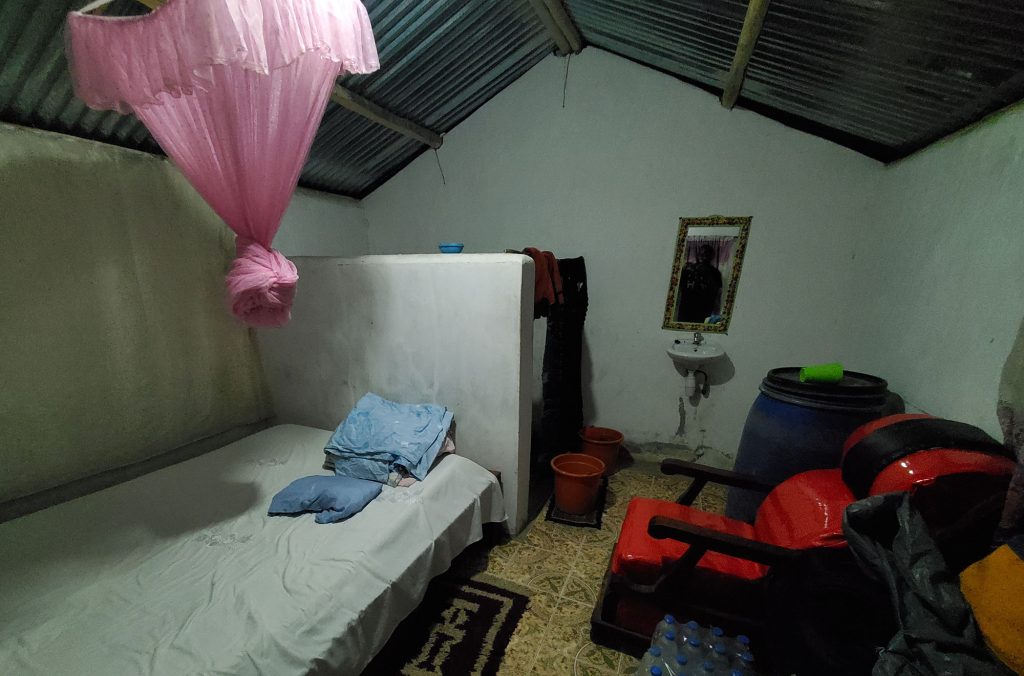
- Immerse yourself in the field, not just the research.
Find ways to immerse yourself in the field beyond your research activities. This could include learning the basics of the local language, eating traditional meals or participating in important cultural activities. This immersion helps you build a better understanding of the community and offers perspective on the lives of the people or phenomena you seek to study. These activities can also be great icebreakers and conversation starters to engage with community members. Demonstrating your genuine interest in people as human beings and not merely research subjects enhances your acceptability in the field.
I still vividly remember how locals who wondered who we were suddenly beamed when we used local expressions such as “Akam negaya” (peace greeting in Ethiopia) or “Faly mahita anao” (means “Nice to see you” in Malagasy). These simple phrases were powerful enough to get people to open up to our team, generate enthusiasm for participating in the study, and sometimes initiate informal conversations outside research activities that provided additional context for our study.
- Have fun and rest!
Field research is serious business, but make sure you have some fun! Taking a step back to unwind and de-stress occasionally is critical to protect the team’s sanity and avoid dysfunction. Make time to visit famous sites, stroll around your environment, bond over some good food, or chill at the beach. Do whatever is best and feasible in your environment. A few hours of fun and relaxation are sure to re-energize the team to be productive and efficient.
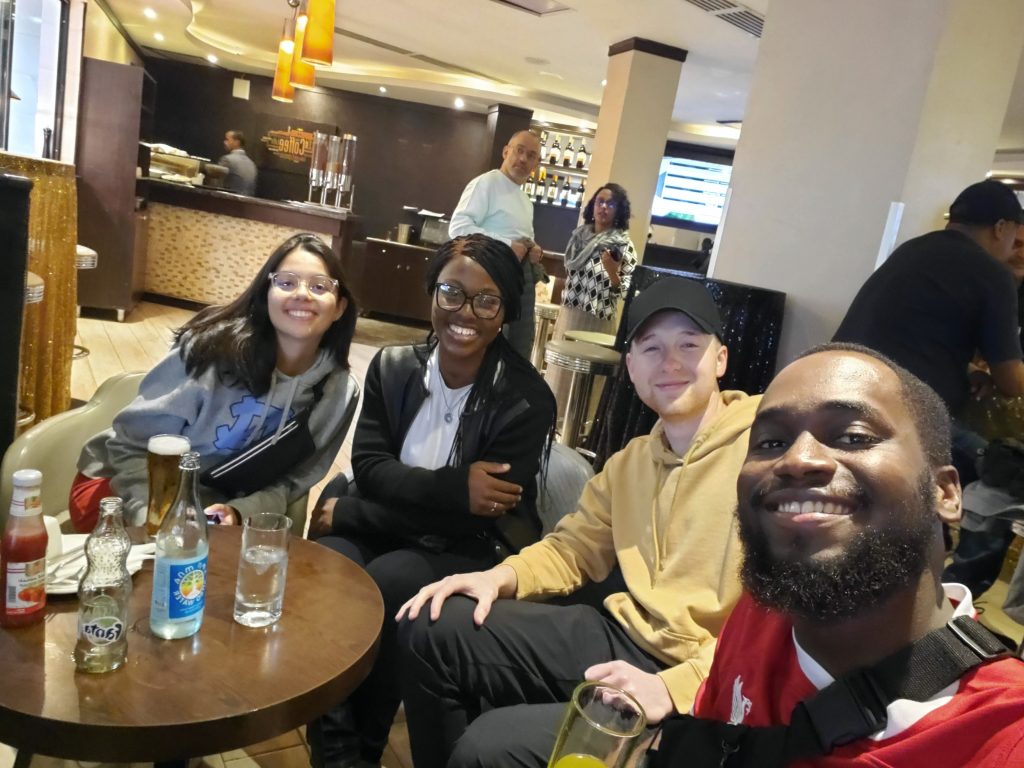
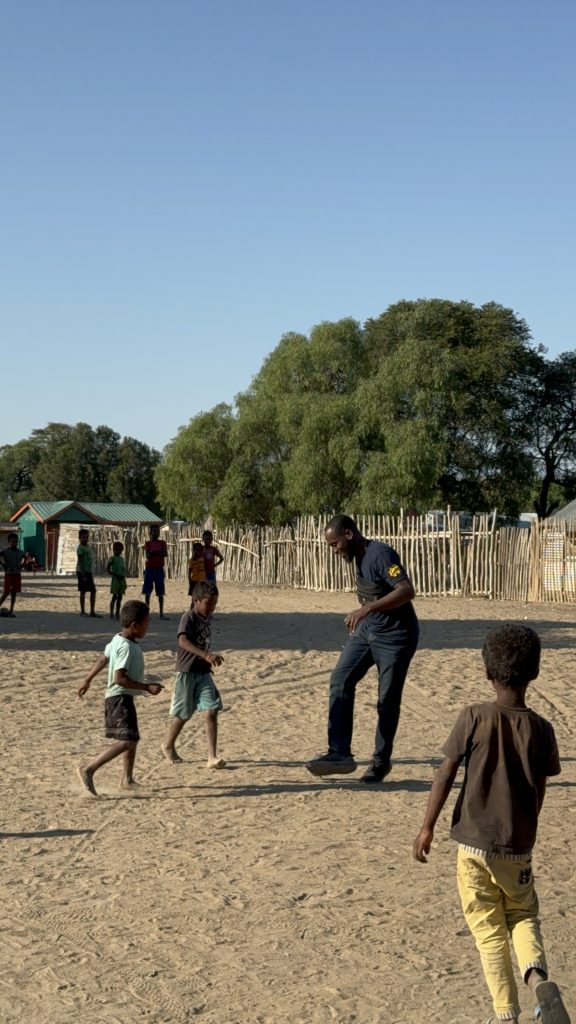
While the above suggestions may seem obvious, the intensity of field research can make it easy to relegate them to the background while the team focuses on its research priorities. Research teams can benefit from incorporating these recommendations into their plans, therefore becoming more successful amid the challenges they encounter in the field.
Emmanuel Gyasi is a second-year master of global affairs student in the Keough School of Global Affairs at the University of Notre Dame.
Top photo: Master of global affairs student Emmanuel Gyasi with local children in the village of Jarso, Ethiopia.

